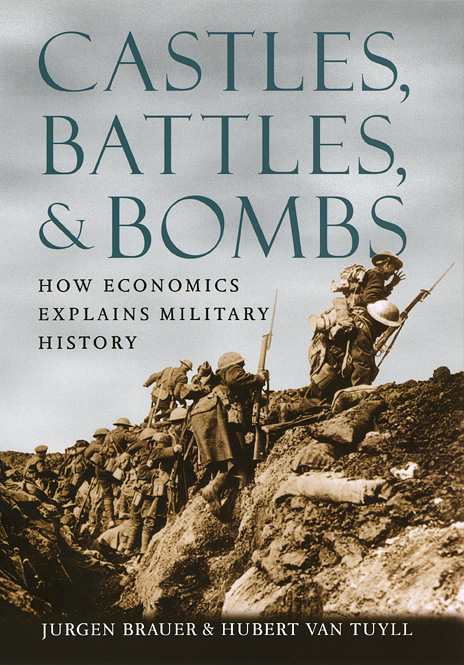The economics of war

Jurgen Brauer and Hubert van Tuyll’s new book Castles, Battles, and Bombs: How Economics Explains Military History was given a positive review by Geoffrey Blainey in the July/August edition of the Australian Book Review. Praising the book for its unique and insightful use of economic principles to explain military strategy throughout the ages Baliney writes:
Castles, Battles & Bombs offers insights about various periods of warfare. Some insights arise from the alertness of the authors… but other lessons in the book probably arise from their unusual technique. As economics is perhaps the most advanced of the social sciences, and as it is not frightened of making bold generalisations about human behaviour, some of its theories, the authors imply, should be applicable to military behaviour. Accordingly, they select six important episodes in warfare, five in western Europe and one in the United States, and then found a well-known economic theory or tool which might help to illuminate each episode.
In studying medieval warfare, and its emphasis on building defensive castles rather than equipping large armies, the authors invoke the principle of ‘opportunity cost’. They point out that the castle had special advantages. It was a cheap way of guarding and controlling conquered enemy territory. Moreover, in an era of defensive warfare, a small force of men could defend it for a long period against a large army waiting outside the ditches and walls.…
The heavy British bombing of German cities in World War II persuaded the authors to consult another economic theory: ‘diminishing marginal returns.’ In the face of massive air raids, German railways and factories were surprisingly resilient, and Germany continued to make more and more aircraft. Moreover, contrary to predictions, the bombs did not weaken the German civilian morale, just as the earlier German bombing of London had not dinted British morale.…
Read the full review on the ABR website.
Also read an excerpt from the book.